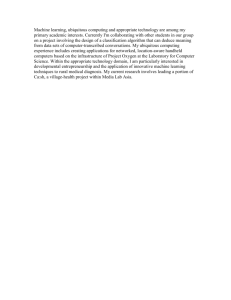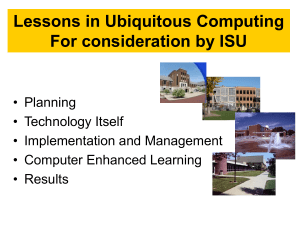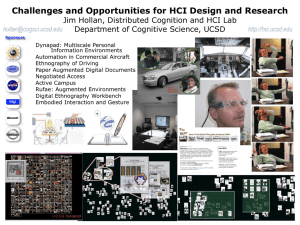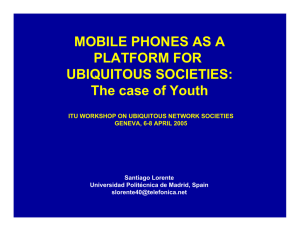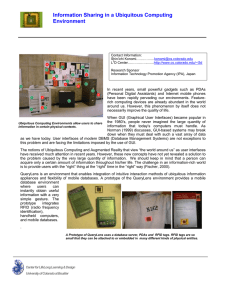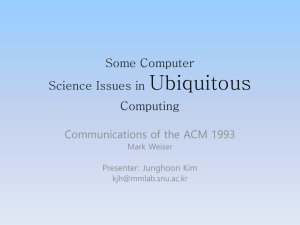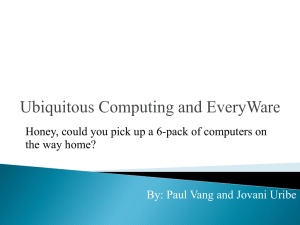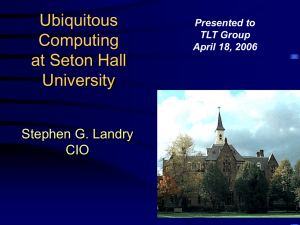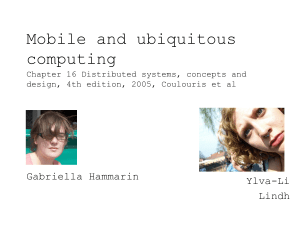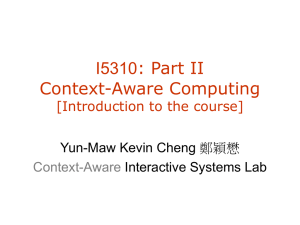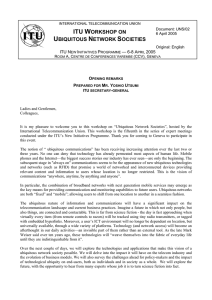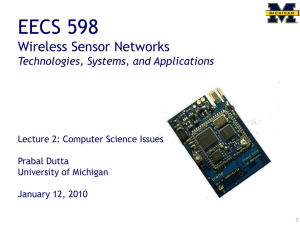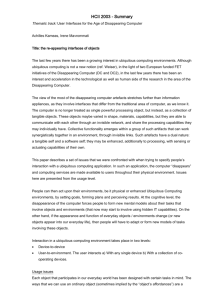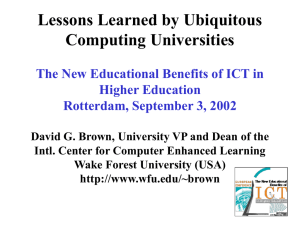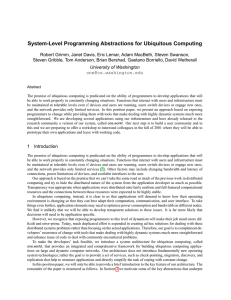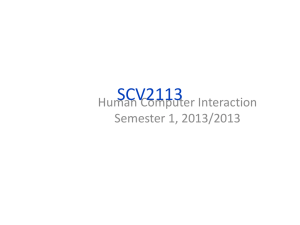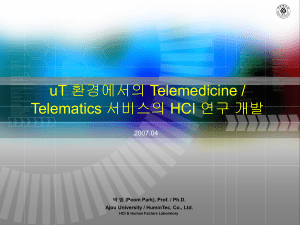Human Information Processing and Ubiquitous Computing
advertisement
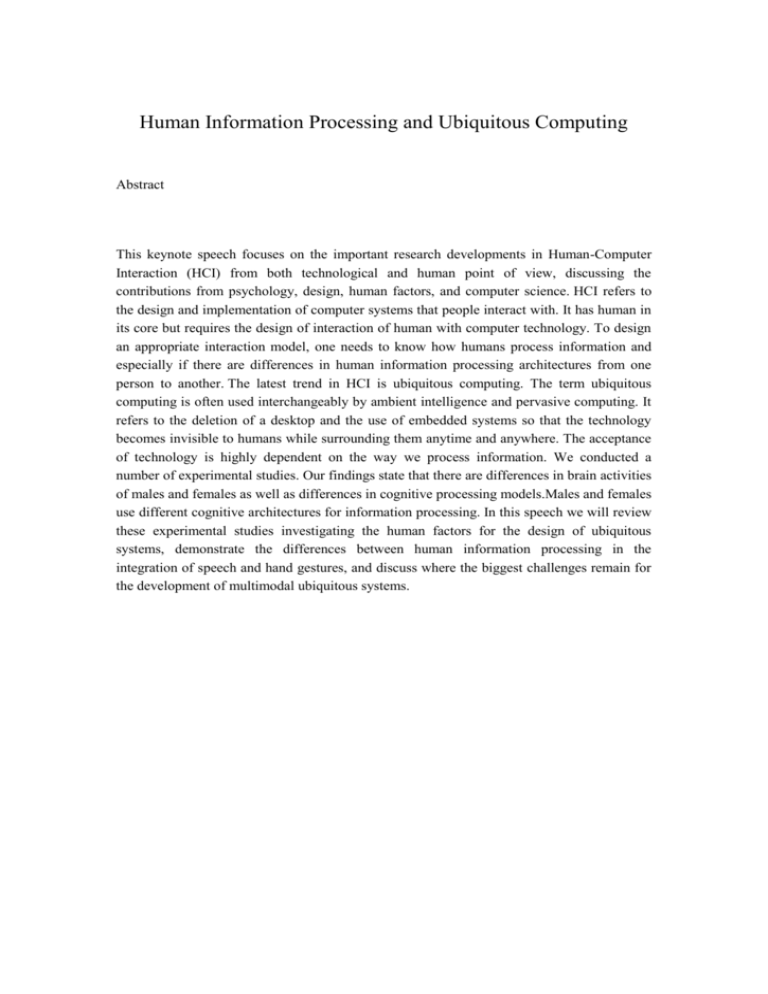
Human Information Processing and Ubiquitous Computing Abstract This keynote speech focuses on the important research developments in Human-Computer Interaction (HCI) from both technological and human point of view, discussing the contributions from psychology, design, human factors, and computer science. HCI refers to the design and implementation of computer systems that people interact with. It has human in its core but requires the design of interaction of human with computer technology. To design an appropriate interaction model, one needs to know how humans process information and especially if there are differences in human information processing architectures from one person to another. The latest trend in HCI is ubiquitous computing. The term ubiquitous computing is often used interchangeably by ambient intelligence and pervasive computing. It refers to the deletion of a desktop and the use of embedded systems so that the technology becomes invisible to humans while surrounding them anytime and anywhere. The acceptance of technology is highly dependent on the way we process information. We conducted a number of experimental studies. Our findings state that there are differences in brain activities of males and females as well as differences in cognitive processing models.Males and females use different cognitive architectures for information processing. In this speech we will review these experimental studies investigating the human factors for the design of ubiquitous systems, demonstrate the differences between human information processing in the integration of speech and hand gestures, and discuss where the biggest challenges remain for the development of multimodal ubiquitous systems.
